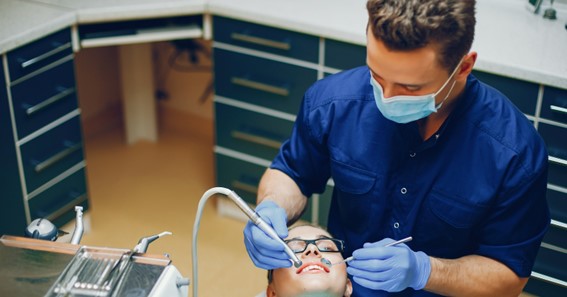Many people are uncomfortable about visiting the dentist or going through various dental procedures. In fact in some cases it is so severe that people actively avoid it as much as possible.
Sedation dentistry offers a way for those people to feel more relaxed during mental procedures – making it more bearable. However before you decide to opt for it, there are a few important things that you need to know:
- It is not anesthesia
People often confuse sedation with anesthesia. While there are different levels of sedation, they usually keep you awake or in a light state of unconsciousness – unlike general anesthesia that will make you full unconscious.
In short, sedation will make you feel relaxed and drowsy, but still able to respond.
- It is safe
Sedation dentistry is closely regulated and dentists need to undergo special training to administer it. They follow strict medical guidelines and consider the patient’s medical history, lifestyle, and existing medications before deciding whether or not to proceed and determining the type and amount of sedatives to use.
While there are some risks and potential side effects, they are minimal when sedation is administered by a trained dental professional.
- It is not only for people with anxiety
Contrary to popular belief, sedation dentistry can benefit you even if you don’t feel that you have anxiety about dental procedures. It can help you stay calm during long dental procedures, or if you have difficulty remaining still for long.
It is also known to help people who have a strong gag reflex, sensitive gums and teeth, or deal with jaw, neck or back pain that may flare up when lying down on the dentist’s chair for an extended period of time.
- It does take time to recover
After sedation dentistry you will need to give some time for the effects to wear off. The exact amount of time will vary depending on the type of sedation, and for nitrous oxide it may only take about 15 to 30 minutes.
Other types of sedation take longer however, and in the case of oral sedation or IV sedation it is recommended that you allow a 24 hour recovery period – and avoid driving during that time.
- It allows dentists to work faster
Dentists generally are able to work faster when patients are sedated. Because the patients are less likely to move their mouth or squirm in the chair it allow dentists to perform procedures more quickly.
In some cases procedures that may normally require multiple appointments may be completed in fewer as well.
- It is recommended you keep your stomach empty
Prior to sedation dentistry, it is best to keep your stomach empty. As a rule you should avoid eating any food or drinking anything after midnight the night before your dental appointment.
The reason why it is best to avoid eating food is that sedatives can sometimes make you feel nauseous. To ensure you aren’t dehydrated, it is recommended that you drink more water the day before.
Hopefully this has helped you to understand sedation dentistry better, and clear up some of the more common misconceptions that people have about it. To put it simply, it is a very viable option to help make your dental appointment a more relaxing experienc
If you are interested in sedation dentistry or have any further questions you should talk to your dentist about it. Be sure to ask if they are able to perform sedation dentistry, or if they can recommend a dentist who is trained and experienced in it if they are not.







